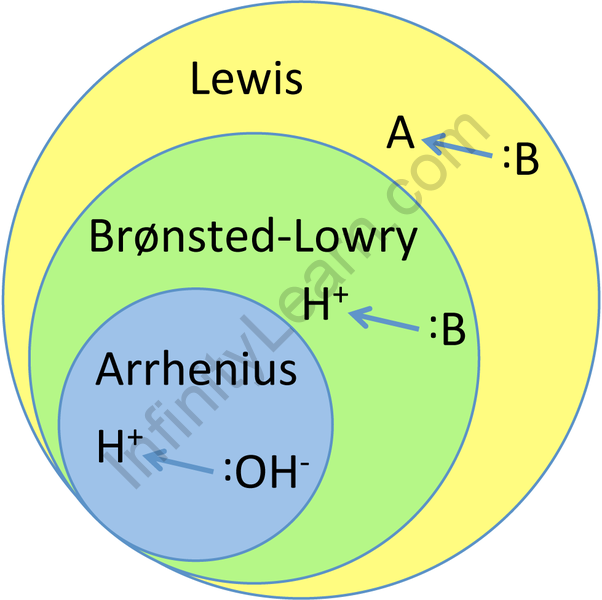We are more interested in the fundamental differences between brosnted and lewis mechanisms rather than merely mimicking a particular system. The lewis definition is broader than the bronsted.

Acids And Bases: Lewis Vs. Bronsted
Are lewis acid and bronsted acid the same?

Bronsted vs lewis acid. Bronsted and lewis acids/bases differ in their definition. Base is is a species having a tendency to lose electrons. You should remember that bronsted acid sites donate protons, while lewis acid sites accept electrons to form carbocations from hydrocarbons.
In comparison, a lewis acid is the h+ (proton) itself. Links to related reading in textbook (mcmurry, organic chemistry, 4th ed.) chapter 2, section 2.6: Once you're not in water anymore, lewis definitions are more useful.
Lewis acids are basically electron pair acceptors. Figure 7.2 illustrates how an olefin (e.g., ethylene, c=c) produces an ethyl carbenium ion (c +2 h 5) by reacting with a proton donated from bronsted acid site. Lewis acid is a species having a tendency to accept electrons;
Where as the lewis theory talks about donation or acceptance of electron pairs. • this is a great answer. The differences in definitions of the two types of acids and bases and how to identify themfor any questions or what topics you would like me to cover you ca.
The lewis acid is an electron acceptor and a lewis base is an electron donor. So normally a lewis base will have lone pair electrons or a negative charge while a lewis acid will have open bonding regions or a positive charge. Lewis bases are electron pair donors.
The nh 3 donated a pair of electrons to the h, which came off of the water. Acids and bases will fall under one or more of the following three categories: For example, if hf were to deprotonate in water, the acid in the lewis definition is the h+ ions, while hf would be the bronstead acid.
In contrast, lewis said that acid has a vacant orbital capable of accepting electron pairs to form a lewis adduct. Lewis acids are electron pair acceptors. What i can't seem to understand is how to put it in practice.
The h itself accepted the electron pair. The main difference is that in the bronstead definition, the molecule that is donating the h+ is the acid, for example, hcl. Both become more ‘negative’ after their reaction, so both have more of an affinity for negativity than the other reactant.
Generally metals acts as a lewis acid as they have a vacant orbital to accept an electron pair. Thus, the present system provides an excellent opportunity to compare the catalytic reactivities of the bronsted acid, hc104, and the lewis acid, et3sic104, for the first time under the same reaction conditions. Nh 3 is the lewis base.
And base is a species having a tendency to accept a proton. No, lewis acid and bronsted acid are different. None of the theories is more “accurate” than the others.
The bronsted theory works well for acids and bases in aqueous solution. Help with determining when a reactant is a lewis acid/base, or bronsted acid/base here's an example of a question (and here is the answer) i get that lewis deals with electron accepting/donating, while bronstead deals with hydrogen accepting/donating. Bronsted said that an acid is a substance capable of donating proton or h + to another compound and forming a conjugate base.
According to this theory, an acid is a proton donor and a base is a proton acceptor.

Bronsted Lowry Acid And Base_Chemistry - Infinity Learn
How Do Lewis Acids And Bases Differ From Bronsted/Lowry Acids And Bases? | Socratic